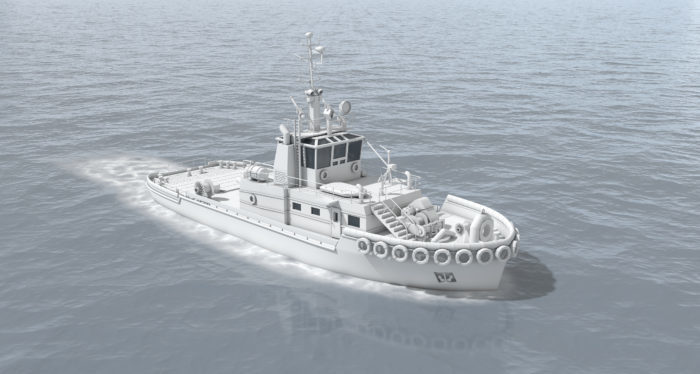Zurich-based technology company ABB announced the signing of a contract with Singaporean shipyard Keppel Offshore & Marine to jointly develop an autonomous tug to operate from 2020. Upon project completion, the vessel is anticipated to be South Asia’s first autonomous tug.
Under the deal, ABB and Keppel O&M’s technology arm, Keppel Marine and Deepwater Technology (KMDTech), will jointly develop the technology for autonomous vessels and retrofit a 32-meter harbor tugboat, enabling autonomous vessel operations in the Port of Singapore at the end of 2020.
During the initial phase of the project, the vessel, operated by Keppel Offshore & Marine’s joint-venture company Keppel Smit Towage, will complete a series of navigational tasks in a designated test area in the Port of Singapore, steered from an onshore control center.
The second phase of the project will see the vessel perform autonomous collision avoidance tasks while under remote supervision.
The intent of our technology is not to entirely remove the crew, but rather to relieve the crew from the tasks than can be automated and thus enable them to perform at their best during critical operations,
…said Juha Koskela, Managing Director, ABB Marine & Ports.
This move follows the trial of the remotely operated passenger ferry Suomenlinna II, carried out in Helsinki harbor in November 2018.
In April 2018, MPA Singapore signed a MoU with Keppel Offshore & Marine (Keppel O&M) and the Technology Centre for Offshore and Marine, Singapore (TCOMS), to jointly develop autonomous vessels for a variety of operations, including channeling, berthing, mooring and towing operations.
Under the agreement, KMDTech will now work with MPA Singapore and the Technology Centre for Offshore and Marine, Singapore (TCOMS) to develop various technologies and be the system integrator for the autonomous solutions.
The Port of Singapore, which sees over 130,000 vessels calling annually, has exponentially denser shipping patterns, which will add another layer of complexity to the trials.
The trials aim to validate the increased safety and efficiency of tug operations by utilizing digital solutions that are already available today for nearly any kind of vessel.
Tug operations, where a tugboat maneuvers other vessels by pushing or towing them, often in crowded harbors, can be demanding.
In addition, sometimes the tugs have to do long transits to get to their destination.
Performing the transit autonomously and under remote supervision would enable the onboard crew to rest and be alert when they are needed in the actual work of the tug.
…ABB explained.
ABS will provide the Approval in Principle for the novel features such as Remote Navigation Control and Autonomous Control System.






























































